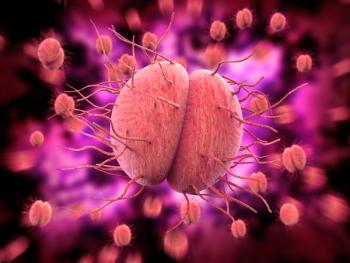
Common Chemical Associated With Low Sex Drive in Women
As a result of concern over widespread phthalate exposure, pregnant women were studied to determine their phthalate level and its effect on reproductive health.
Exposure to phthalates, a known endocrine disrupting chemical, can negatively affect sex drive in premenopausal women.
Phthalates (sometimes called plasticizers) are chemicals that can be found in many products used in everyday life, from personal care products such as skin creams and perfume to plastic wrap and detergents. Exposure to phthalates not only can result from using products that contain the chemical but also can occur by breathing in dust in a room with fixtures or furnishings that contain phthalates. In 1999, phthalates were discontinued in US-made baby products, such as pacifiers and teethers. Phthalate exposure in Americans is measurable and is characterized by the CDC as "widespread." Amounts of phthalates measured in the urine of adult women have been found to be greater than that found in adult men.
Studies have shown that phthalates affect sexual function in men, and the authors of a
What researchers found was that women who were in the highest quartile of exposure to one of the studied metabolites were also the most likely to experience a lack of sexual interest. The other metabolites were also associated with a lowered sex drive. While 37 women in the study did report vaginal dryness, this symptom was not found to correlate to their phthalate exposure.
The researchers concluded that because phthalate exposure is so widespread, a greater understanding of its effects on sexual function is of "utmost" importance.
References:
Other Sources:
Newsletter
Get the latest clinical updates, case studies, and expert commentary in obstetric and gynecologic care. Sign up now to stay informed.








